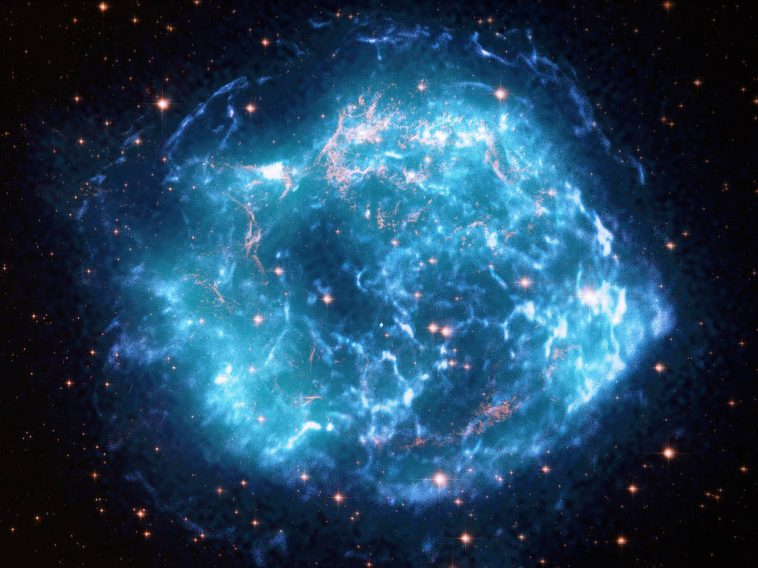This composite image, made with data from IXPE, the Chandra Observatory and Hubble, shows Cas A. IXPE’s survey of Cas A from Jan. 11 to Jan. 29, 2022, adding information about the exploding star’s magnetic field Key message from the behavior: Scientists found that magnetic fields in X-rays tend to be aligned in radial, rather than vertical, directions. The polarization data also showed that these X-rays came from turbulent regions with many different magnetic field orientations.
When a massive star collapses in the constellation Cassiopeia, it produces a supernova explosion, some of the fastest shock waves in the Milky Way. These fast shock waves are one of the reasons the Cassiopeia A (Cas A) supernova remnant was chosen as the object first observed by our Imaging X-ray Polarimeter Probe (IXPE).
This composite image, made with data from IXPE, the Chandra Observatory and Hubble, shows Cas A. IXPE’s survey of Cas A from Jan. 11 to Jan. 29, 2022, adding information about the exploding star’s magnetic field Key message from the behavior: Scientists found that magnetic fields in X-rays tend to be aligned in radial, rather than vertical, directions. The polarization data also showed that these X-rays came from turbulent regions with many different magnetic field orientations




GIPHY App Key not set. Please check settings